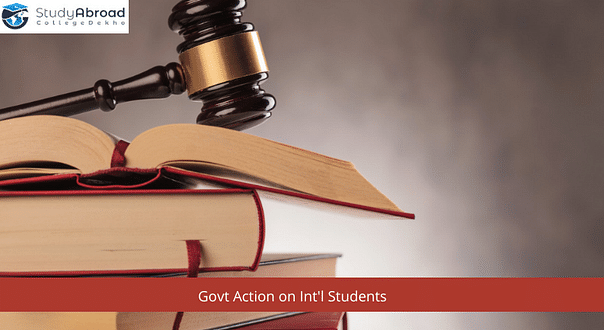According to Esther D. Brimmer, executive director and CEO of NAFSA, neither Ukrainian nor Russian students studying abroad should be compelled to face individual repercussions as a result of their government's actions.
Building understanding and connectivity on campus and across borders is important, and international educators have a critical role to play while the war continues and the recovery phase begins, she added.
The most current need is assistance for Ukrainian and other war-affected students in the United Kingdom. Families are expected to be stuck in occupied large cities or fighting in many, if not all, of these cities.
Also Read:Ukrainian Students Receive Support and Services From Universities in Bordering Nations
Some people may have lost loved ones. They don't have any hometo return to. She stated that they require all of the assistance that institutions and theUnited Kingdom can provide.
MIT and the Australian National University have terminated agreements with the Moscow State Institute of International Relations and the National Research University of Higher School Economics, respectively, while the Universities of Edinburgh and the University of Warwick in the United Kingdom are reviewing collaborations.
All work with Russian institutions will be halted in Germany and Denmark, while the European Commission and the Norwegian government have declared that cooperation in research, science and innovation with Russian organizations will be suspended on the 4th of March.
The German Academic Exchange Service (DAAD) announced that it will halt accepting applications for Russian scholarships and suspend the selection process for DAAD scholarships to Russia, however it appears that some stipends have been reinstated.
Direct DAAD scholarships from Russia to Germany, on the other hand, remain unaffected. All Russian DAAD-scholarship holders who have already arrived in Germany will continue to be supported.
Ukraine's Ministry of Education and Science has also encouraged foreign scientific institutes to stop working with Russian universities.
Also Read:Russia to Launch "Humanitarian Corridor" For Safe Passage of Indian Students
Individual Russian students should be permitted to study at and apply to foreign institutions as if they were any other student, he said, while individual academics may choose to keep in touch but outside of the context of an institutional arrangement and without direct institutional backing.
Brimmer remarked that direct, one-on-one engagement through international education is critical to creating a "more equitable, peaceful world and citizenship," and that schools and institutions would "continue to function as a safe haven for individuals of varied backgrounds and opinions to participate."
Planning to Study in the UK? Get FREE Expert Advice Today!
Source: The PIE News

























